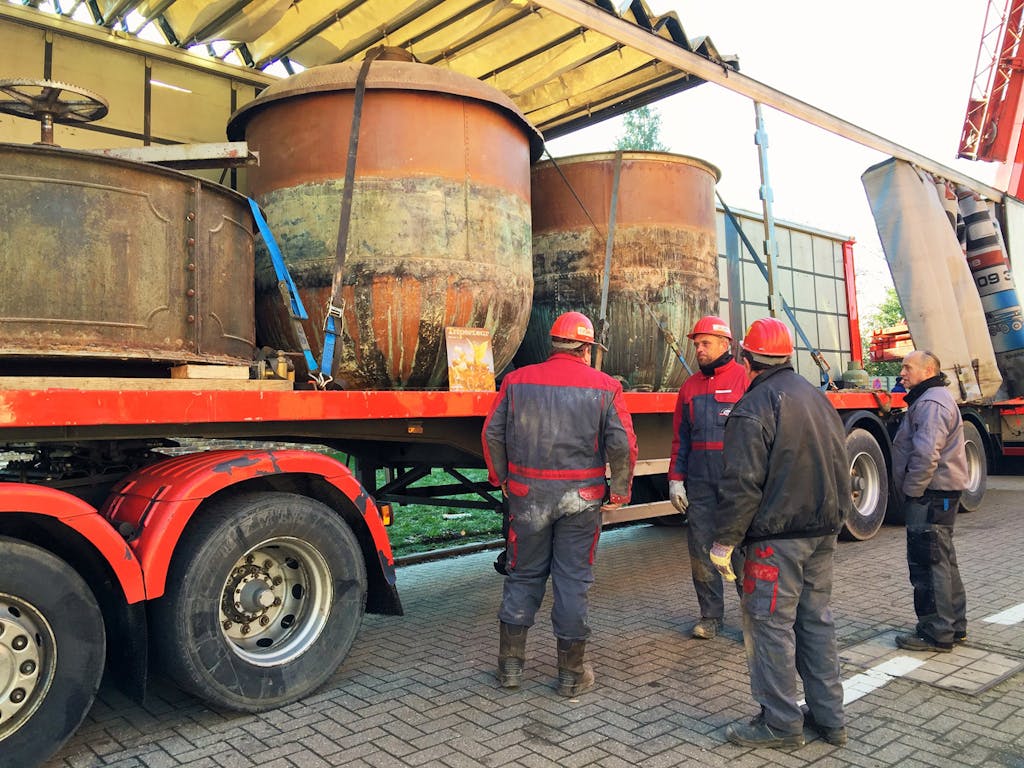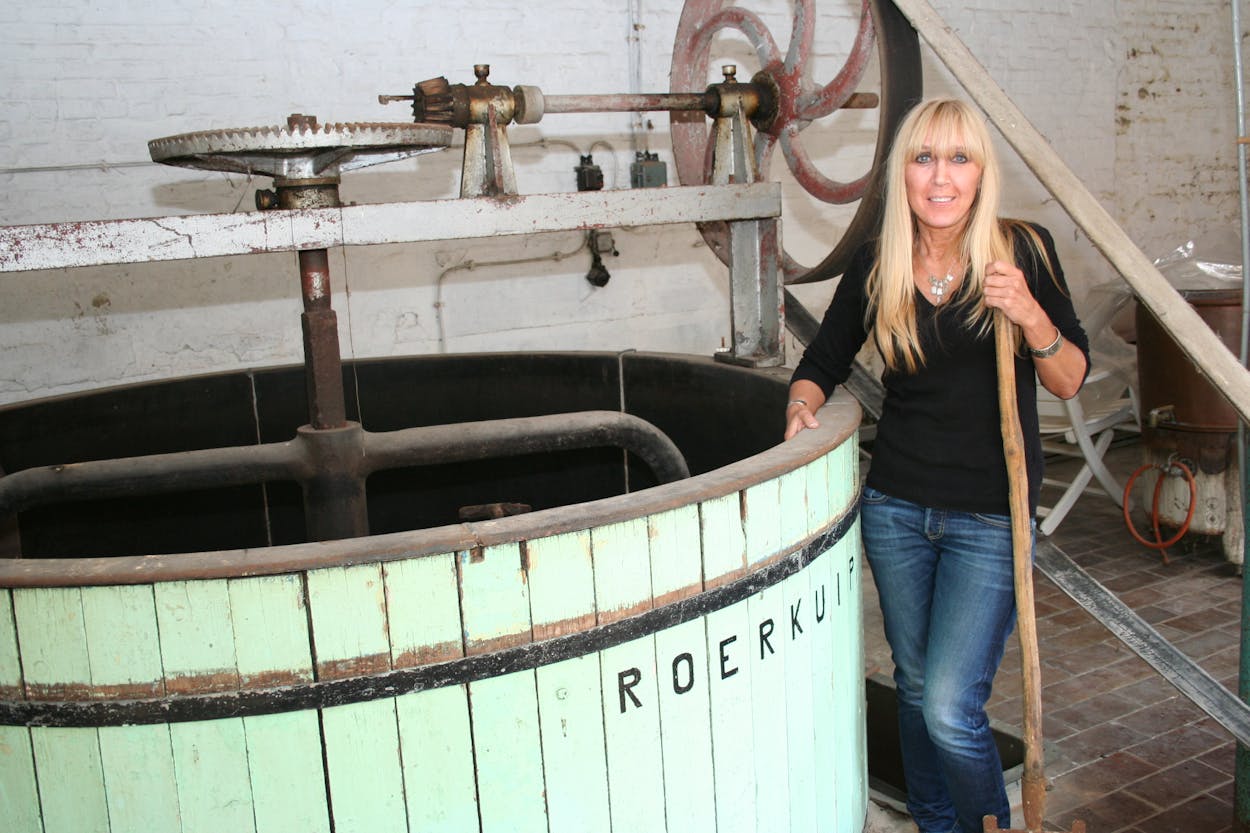This week it was announced that a new brewery in North Austin—the Flemish Fox Brewery & Craftworks—would be breaking ground, news of yet another craft brewery joining Texas’s relatively crowded field of such enterprises. Yet, despite the regularity of such openings, this one is particularly noteworthy. Mainly because the brewery’s founder, Christine Celis, is the daughter of Pierre Celis, one of the people who kicked off Texas’s craft brewing trend in the early nineties.
Many Texans—in particular, Austinites—will remember Celis Brewery, an early nineties startup that put witbier, a 400-year-old style of Belgium wheat beer, on the map in the United States. Prior to that, Celis was noted as having literally saved witbier from extinction when he began producing the brew in its hometown of Hoegaarden, Belgium, in 1965 following the closure of the town’s last brewery, Brasserie Louie Tomsin.
Celis had learned to make the beer at Tomsin, and he carried on this traditional style at his own small, 660-gallon brewery, Brouwerij De Kluis. The beer is now produced on a massive scale by InBev, an international beer company, and today, most people know the brew simply as Hoegaarden. Celis, who is often referred to as the Godfather of witbier, brought his skills to Texas in the late eighties and opened the celebrated Celis Brewery in 1992.
The story of Celis beers has taken a few meandering turns in the decades since. And following Pierre Celis’ passing in 2011, it was unclear just how his voice in the craft brewing industry would continue on. As it turns out, the story will remain in the family.
With the opening of the Flemish Fox Brewery and Craftworks, Pierre’s daughter, Christine, will bear the torch and carry on her family’s legacy. Her brewery, sitting on more than three acres in northwest Austin, will begin producing beers later this fall, and it will also serve as the Austin home for Detroit-based Atwater Brewery as that company looks to expand its distribution (it’s currently available in nearly 20 twenty states). The property will feature a state-of-the-art production facility, a tasting room, an outdoor beer garden, and retail shop. The brewery museum will likely also pay homage to Pierre—and perhaps leave a little room on the wall for the future generations of Celises who choose to brew.
In advance of that opening, I talked to Christine to talk about her new venture.
Jessica Dupuy: For people who don’t know the Celis name in Texas, how would you characterize your involvement with craft brewing in the state?
Christine Celis: I was born and raised in a brewery in Belgium. It’s been a part of my life longer than anything else. When my dad started his brewery in Texas, we were one of the only craft breweries in the state.
JD: So you got into the game before the game had really even begun. What has it been like watching the evolution of craft beer in Texas?
CC: It’s been amazing to see the tremendous change in the industry. When we started in 1992, people did not understand the difference between beer and ale. They didn’t know there was a possibility of cloudy beer, which is a specialty of wit beer. People were unfamiliar with fruit beers and so on. There was so much to discover.
Now, people know. They are embracing every kind of craft beer. Everything from sours to great traditional beers. People want something fresh and locally brewed, and they want to know more about it.
JD: Having seen how craft brewing has evolved in the United States over the past thirty years, how would you define what it is?
CC: To me, craft brewing has a focus on quality, ingredients, and independence. It’s about making a product that comes from the heart and soul. But it also means consistency and innovation. You can’t only look to the past to make great beer consistently; you also have to look to the future.
JD: Tell us about the name Flemish Fox. Where did that come from?
CC: Well, Flemish, because of the northern part of Belgium—or Flanders—where we’re from. A fox is small and witty, but also fast and gets things done. My dad was all of those things, so we’ve named the new brewery to represent him—after all, we’re doing this to continue his legacy.
JD: What will the Flemish Fox beers be like?
CC: We want to focus on brewing original recipes that my dad had developed in his farmhouse in Hoegaarden. These are recipes that he created when he was reviving the original wit bier including his grand cru and a few abbey-style beers. We’ll also produce a few recipes that he never had a chance to finish. I want to carry on the legacy he began; it’s something to give to the next generation of our family.
JD: With this new endeavor, what are your primary goals?
CC: Our first focus is on Texas. We want to make quality beer here that everyone can appreciate and depend on. We’d eventually love to grow beyond that, but much later.
But our facility will be more than just a brewery. We’ll have a tasting room for people to visit, but also an interactive museum. We’re having all of my father’s original equipment from Belgium shipped over here to restore and set up for people to see how to brew the Belgian styles of beer from the 1800s and early 1900s. It will include his original copper kettles, mash tun, open fermenter tanks and more. It’s a piece of Hoegaarden that people can have here in Texas to admire.

JD: But you need a little help getting those items over here, right? So you’re launching a crowd funding campaign?
CC: Yes. It’s expensive to preserve these items and get them shipped over here. We are launching a campaign that allows people to be a part of the process. Once the museum is set up, we want to have people get the chance to learn how to brew for themselves using this historic equipment.
JD: When do you expect to see the Flemish Fox open and producing beers?
CC: Our goal is to be in full production by spring of 2017. We’ll be building most of our new equipment in Germany and having it shipped here as well. We’re just excited to get started and to have a second chance with what my father began.






